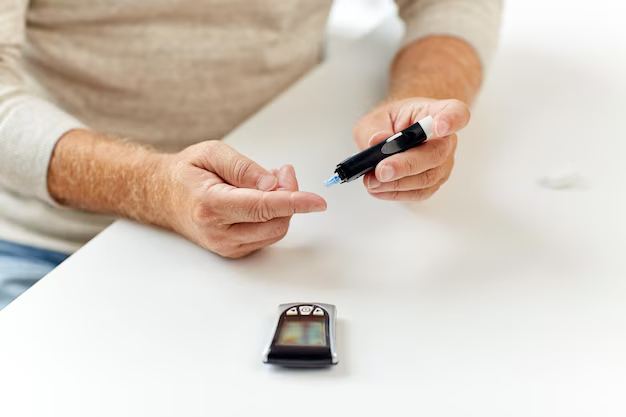Your Guide to Is Type 2 Diabetes Is Reversible
What You Get:
Free Guide
Free, helpful information about Diabetes FAQ and related Is Type 2 Diabetes Is Reversible topics.
Helpful Information
Get clear and easy-to-understand details about Is Type 2 Diabetes Is Reversible topics and resources.
Personalized Offers
Answer a few optional questions to receive offers or information related to Diabetes FAQ. The survey is optional and not required to access your free guide.
Can Type 2 Diabetes Be Reversed? Here's What You Need to Know
Every day, countless individuals receive the life-altering diagnosis of Type 2 Diabetes, leading them on a quest for clarity and hope. Perhaps you, too, are pondering whether this chronic condition can be a thing of the past. The good news? Type 2 Diabetes is indeed reversible for some people, especially if caught early and managed effectively through lifestyle changes.
Understanding Type 2 Diabetes
Type 2 Diabetes affects the way the body processes blood sugar, potentially leading to severe health complications if not managed. Unlike Type 1 Diabetes, where the body doesn’t produce insulin, Type 2 involves insulin resistance. This means your cells do not use insulin as well as they should, which affects blood glucose levels.
The Possibility of Reversal
Research suggests that losing weight, maintaining a healthy diet, and regular physical activity can significantly reduce blood sugar levels. For some individuals, these changes have even led to remission—defined as maintaining normal blood sugar levels without medication.
Key Strategies for Reversal:
Dietary Changes: Embrace a diet rich in whole foods, fiber, lean proteins, and healthy fats. Avoid processed foods and added sugars.
Regular Exercise: Aim for at least 150 minutes of moderate exercise per week, such as brisk walking or cycling.
Weight Management: Even a modest weight loss of 5-10% of body weight can make a difference.
Monitoring and Maintenance: Regular check-ups, blood sugar monitoring, and adherence to prescribed treatments and lifestyle adjustments are essential.
Lifestyle Interventions: A Pathway to Better Health
If you're looking to reverse Type 2 Diabetes, holistic lifestyle changes are your best bet. While no one-size-fits-all solution exists, the emphasis remains on sustainable modifications tailored to individual needs. Begin with small, achievable goals that integrate seamlessly into your routine, ensuring long-term adherence.
As you embark on this journey, remember that you'll likely need the support of healthcare professionals. They can guide you through personalized diet plans, exercise routines, and medication adjustments.
Bridging the Gap With Financial and Educational Support
For those managing diabetes, the financial pressure can be daunting. Fortunately, there are ways to alleviate some of these burdens:
Government Aid Programs: Many local and national programs exist to support healthcare costs, including diabetes supplies and medications.
Financial Assistance: Seek out organizations that offer grants or low-interest loans for medical expenses.
Debt Relief Options: Consider consulting with financial advisors who specialize in medical debt for personalized solutions.
Educational Grants: These can provide financial support for diabetes education or training programs to foster better management of the condition.
Exploring these resources not only aids in better diabetes management but can also free up financial resources for comprehensive lifestyle changes, making remission a more attainable goal for many.
🏥 Financial Assistance Resources:
- 🔍 Medicare and Medicaid: Check your eligibility for these programs to cover medical expenses related to diabetes.
- 🏥 Nonprofit Organizations: The American Diabetes Association provides information on local assistance programs.
- 📚 Scholarship Programs: Some organizations offer scholarships or funding for diabetes management education.
- 💳 Credit Solutions: Look into medical credit cards or loans with low-interest rates for covering high-cost treatments or supplies.
The road to diabetes reversal is unique to each person, guided by a combination of medical advice, personal commitment, and, critically, the financial and educational resources available. Leveraging these tools can empower mental and financial freedom, paving the way for a healthier, more balanced life.
What You Get:
Free Diabetes FAQ Guide
Free, helpful information about Is Type 2 Diabetes Is Reversible and related resources.

Helpful Information
Get clear, easy-to-understand details about Is Type 2 Diabetes Is Reversible topics.

Optional Personalized Offers
Answer a few optional questions to see offers or information related to Diabetes FAQ. Participation is not required to get your free guide.


